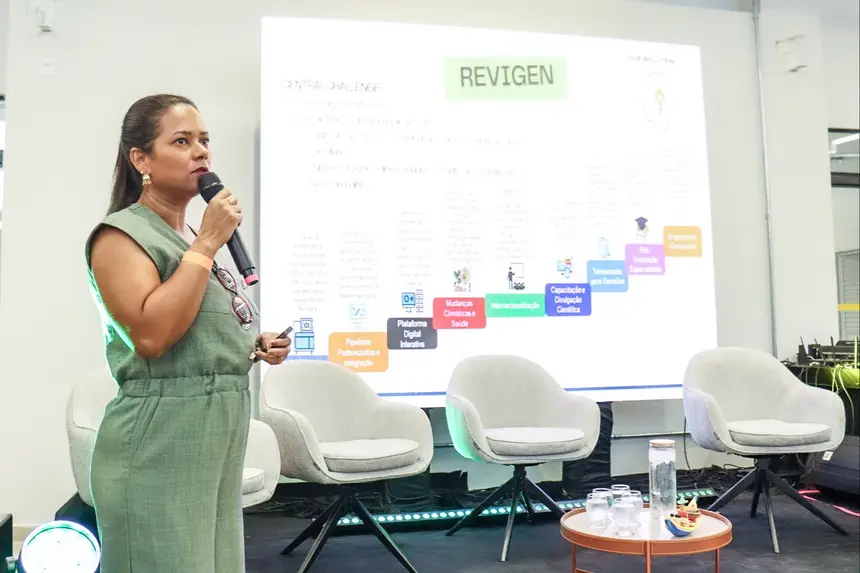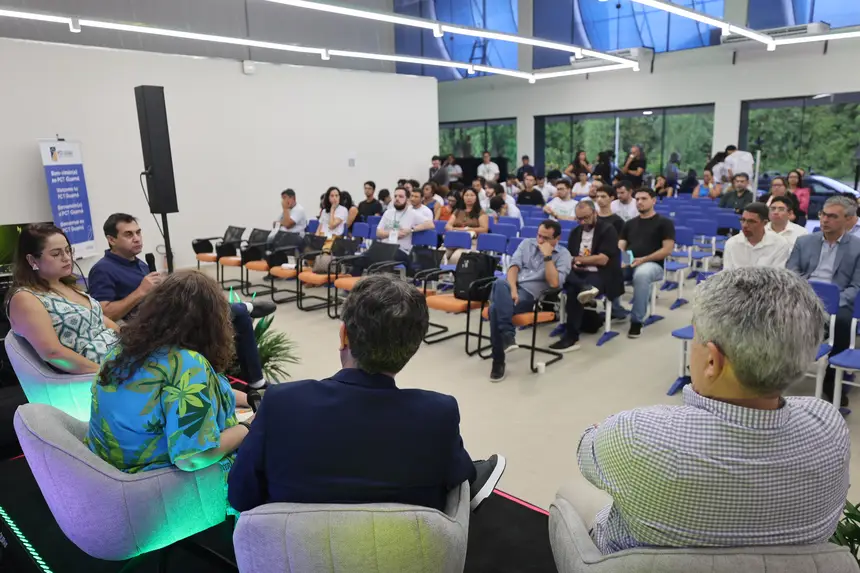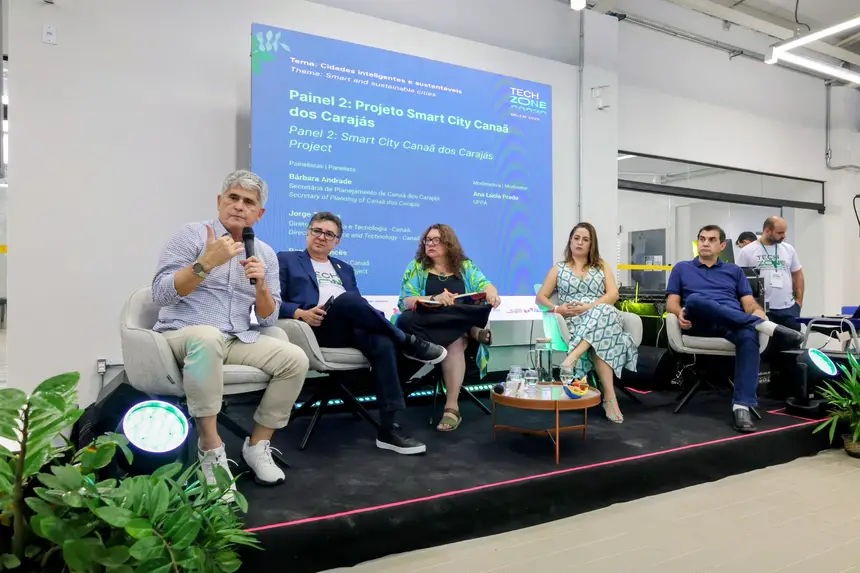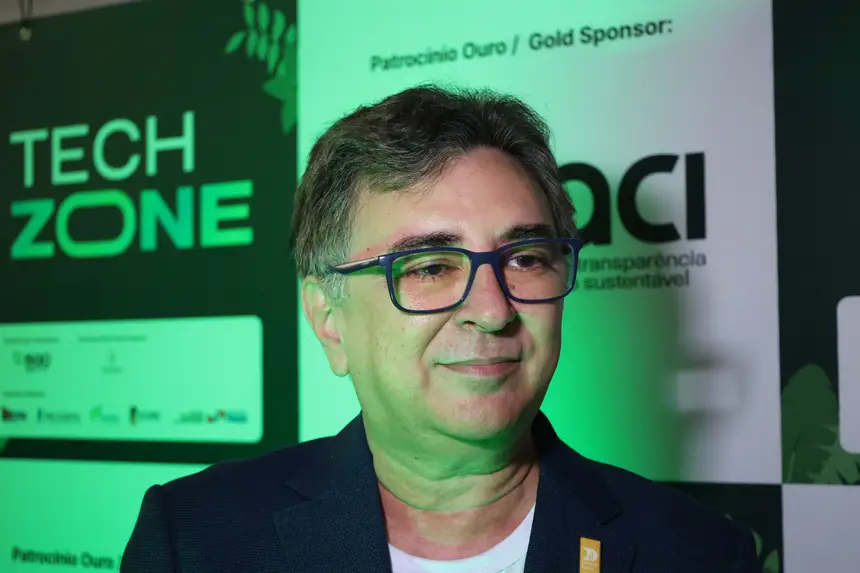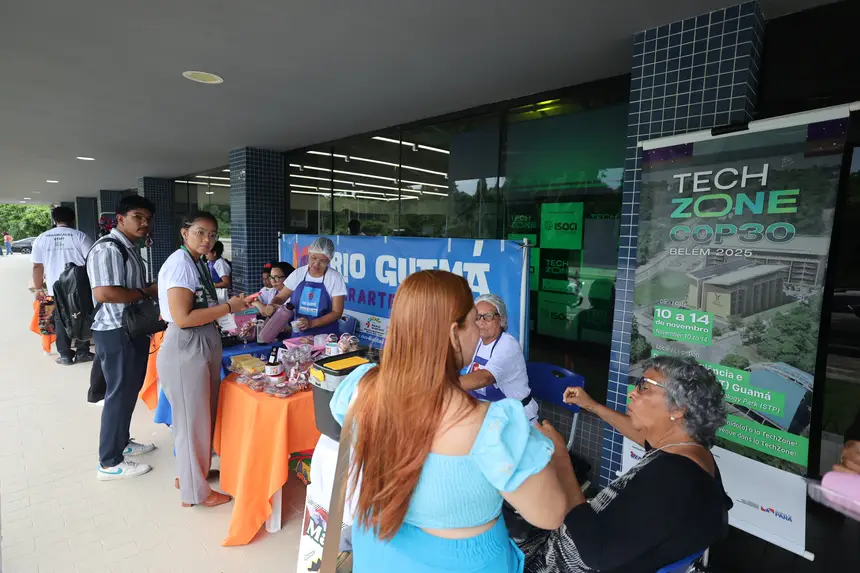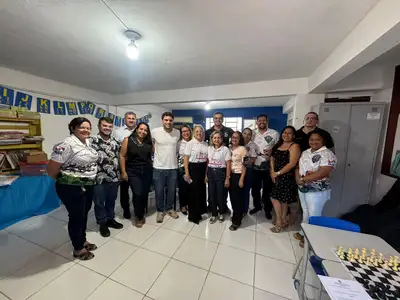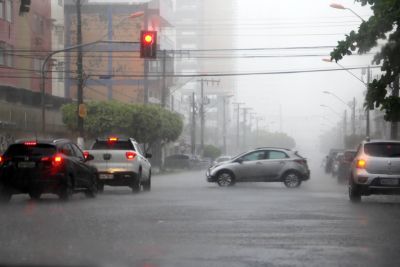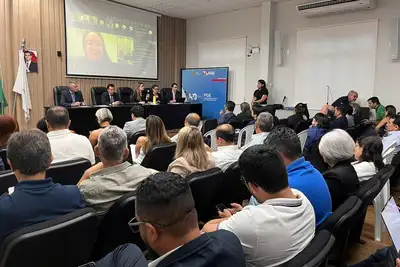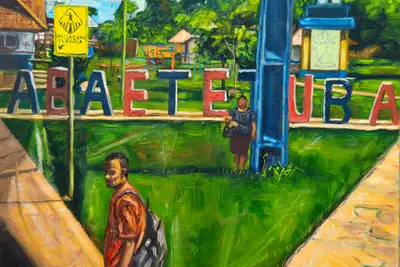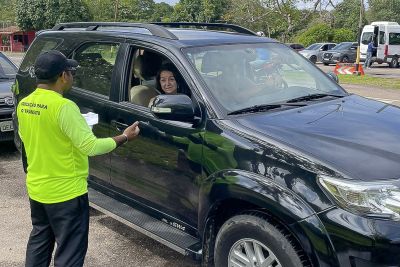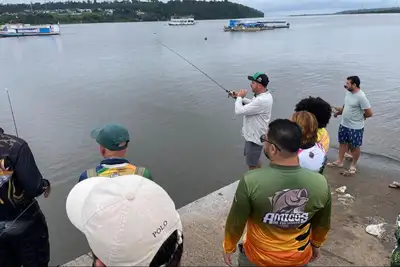TechZone at PCT Guamá: panels unite research and innovation for smart cities
The programming continues this Tuesday (11), focusing on the water resources of the Amazon, highlighting studies and solutions for coastal communities
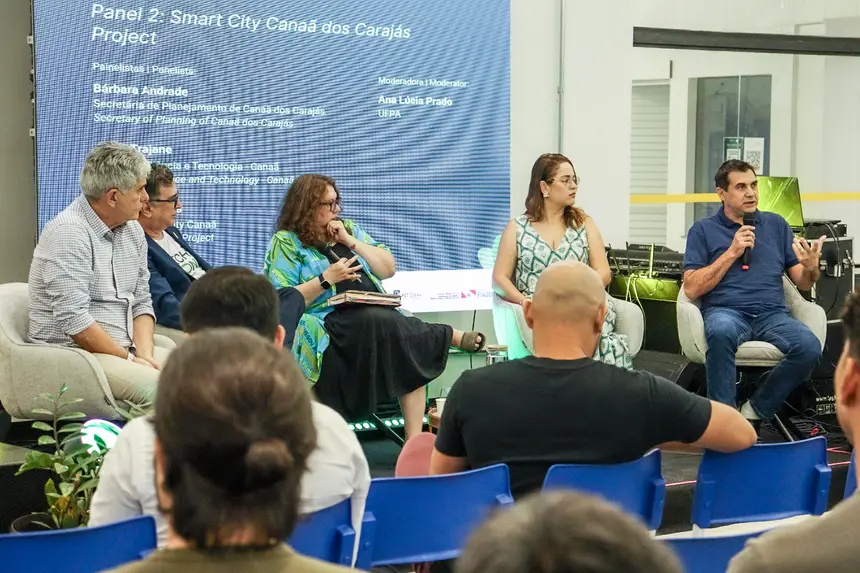
The first day of TechZone, an event held at the Science and Technology Park (PCT) Guamá, featured panels and lectures focused on "Smart and Sustainable Cities." The panel "Technological Vanguard in Health Diagnosis and Environmental Monitoring in the Amazon" brought together initiatives based on Artificial Intelligence (AI), for example, addressing solutions aimed at environmental monitoring and human health.
The panel also discussed the use of AI in the context of biodiversity for biotechnological, energy, connectivity, and sustainable urban management purposes, integrating technology and innovation for the development of more efficient and inclusive cities.
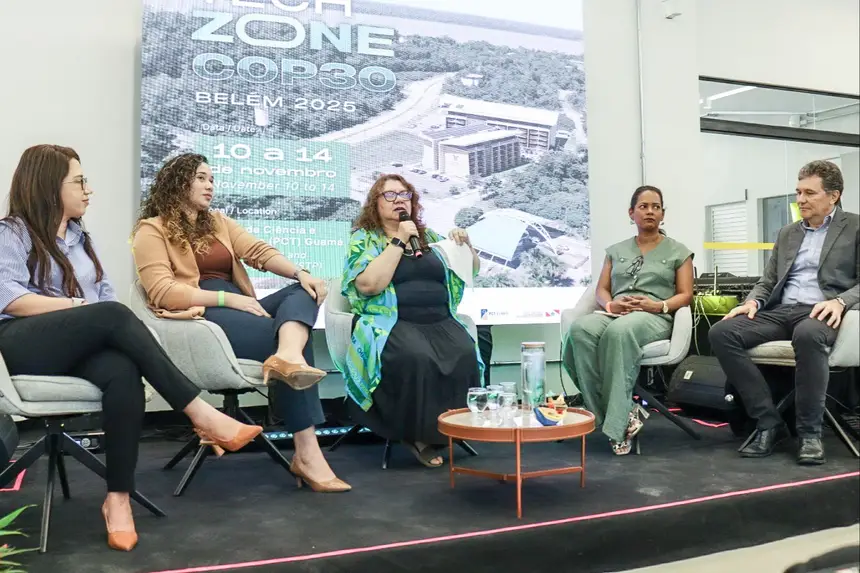
The presentations were conducted by representatives of National Institutes of Science and Technology (INCTs). Luciana da Silva, a researcher from the Genomic Network for Precision Medicine and Infectious Disease Surveillance (REVIGEN), an INCT linked to the Evandro Chagas Institute, highlighted the project that uses genomics and precision medicine as innovation tools in combating diseases such as dengue, Covid-19, tuberculosis, and malaria, relating these challenges to climate change and sustainability in the region.
"It is a medical approach that personalizes treatment and disease prevention based on the individual characteristics of each person, including genetic, environmental, and lifestyle profiles. Genomics, in this context, studies the complete genome of microorganisms to understand the mechanisms of diseases," explained Luciana da Silva.
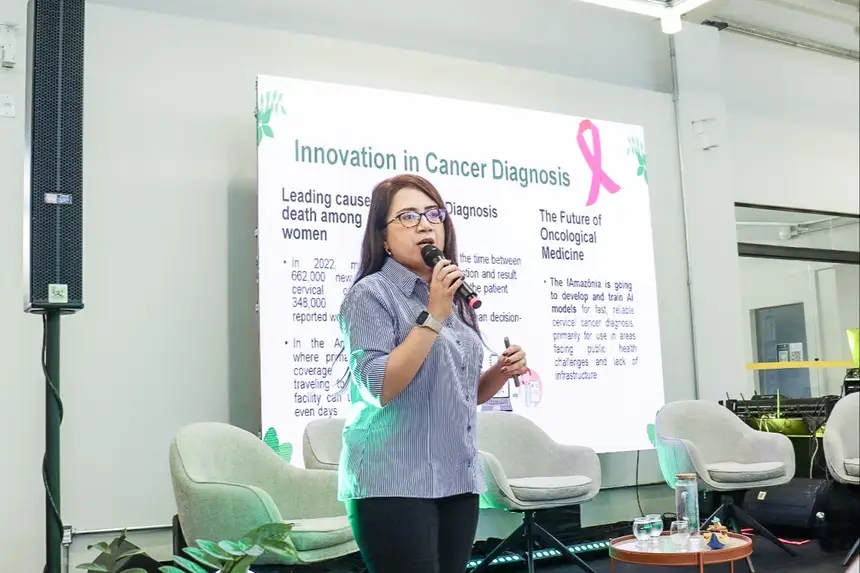
The project proposes the use of advanced technologies to enhance the diagnosis, monitoring, and control of these diseases in the Amazon region. "It is about taking these technologies out of research centers, many of them concentrated in the South and Southeast regions of the country, and expanding them to the North and Northeast, increasing access to these innovations for the populations that need them most," emphasized the researcher.
Another INCT present on the panel was the "Processing and Transmission of Signals for Environmental Analysis and Monitoring" (STREAM) from the Federal University of Pará (UFPA). The initiative contributes to the preservation of Brazilian biomes and the advancement of sustainable agriculture through digital technologies such as signal and data processing, multimodal sensing, artificial intelligence, and robotics applied to preservation and sustainability.
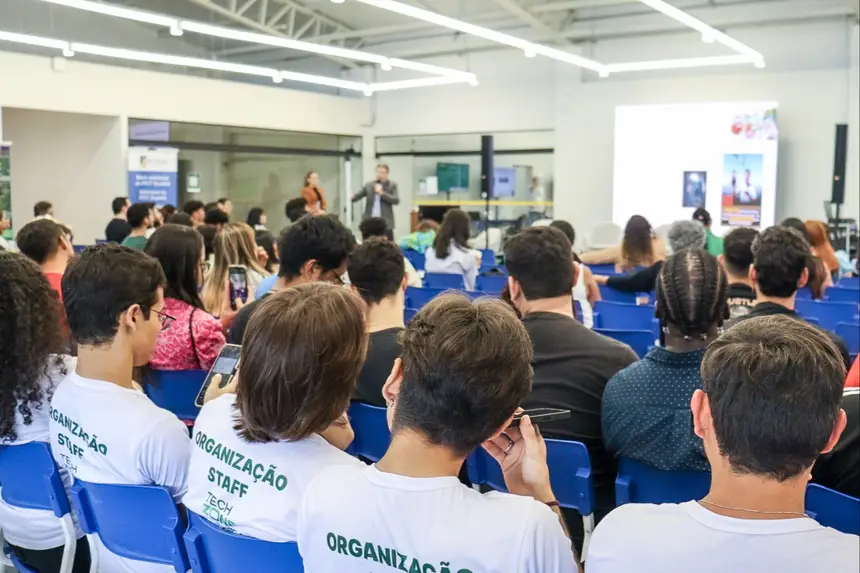
"We address promising technologies here to solve or minimize latent problems in the Amazon, such as land regularization, forest inventory, and digital inclusion, focusing on effective and low-cost environmental monitoring. Among the technologies to be discussed are 5G and 6G, sensors, satellites, and artificial intelligence," highlighted Aldebaro Klautau, project coordinator.
Smart networks for transportation, health, and education
The INCT Applied Artificial Intelligence for Smart and Sustainable Cities in the Brazilian Amazon (IAmazônia) was also a highlight of the panel. The project promotes sustainable development through technologies that reduce environmental impacts and optimize the use of resources such as energy, water, and waste. The initiative also works on creating smart networks aimed at transportation, health, security, education, and sanitation, adapted to the unique conditions of the Amazon.
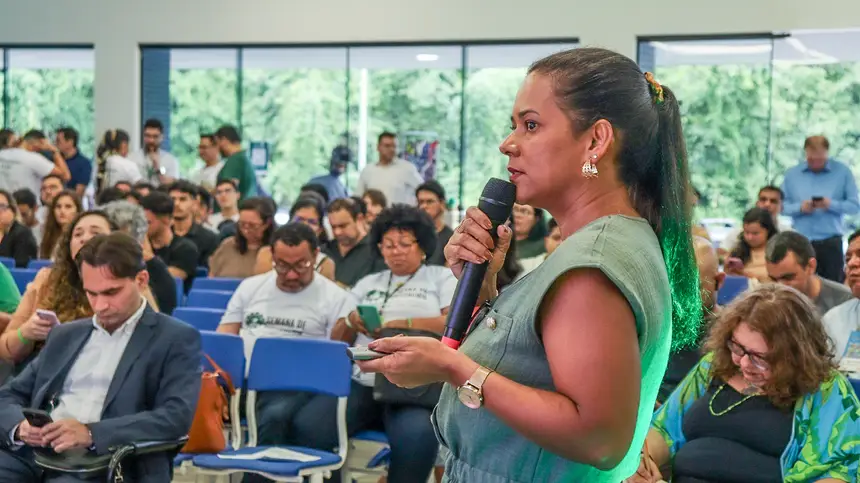
Furthermore, IAmazônia fosters monitoring and protection actions for ecosystems with the support of artificial intelligence, seeking to balance urban growth with forest preservation. One of the pillars of the project is the social and cultural inclusion of traditional communities in the innovation process. The ultimate goal is to develop a model that can be replicated in other regions, making the Amazon a reference in sustainable cities.
"We are happy to present the INCT IAmazônia during TechZone. This project was born out of the need to adapt cities and empower people to make them more resilient to the effects of climate change. In addition, the network brings together more than 35 research institutions and companies, both national and international, committed to developing solutions for smart and sustainable cities in the Amazon, taking into account its opportunities and singularities. It is a topic that is very relevant to COP 30, especially since it is happening here in Belém do Pará," highlighted Evelin Gomes, a researcher from IAmazônia.
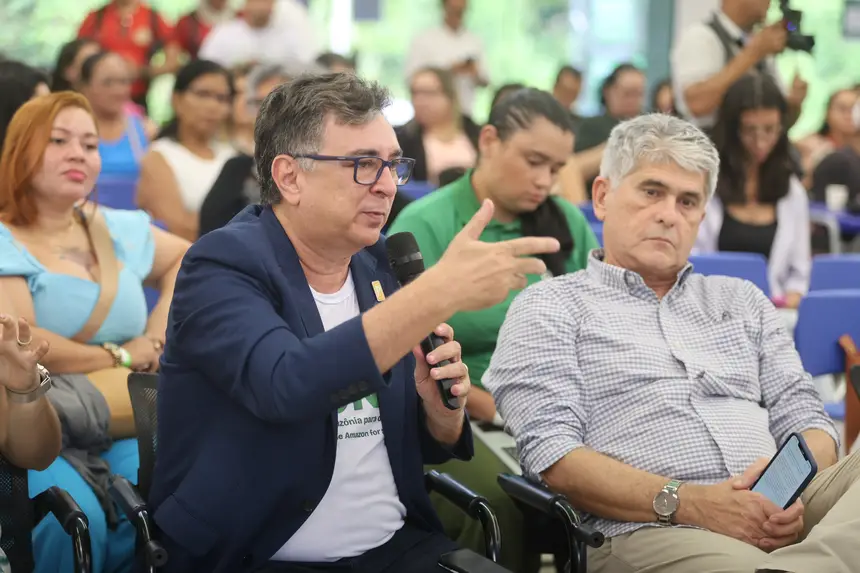
The second panel of the program presented the Smart City Canaã dos Carajás project, an initiative for a smart city that seeks to improve the quality of life of the population through technology and innovation. The proposal includes IT infrastructure, such as a data center, to support intelligent urban management. The project also encourages community participation, technological education, with courses and workshops, and innovation through events such as hackathons. The municipality of Canaã dos Carajás and UFPA are partners in the initiative.
"It is an honor to be here sharing our experience and vision as public authorities in implementing these technologies. Giving visibility to this project within a technological park is extremely important to show that technology can be anywhere and developed to benefit the community," stated Bárbara Andrade, Planning Secretary of the municipality.
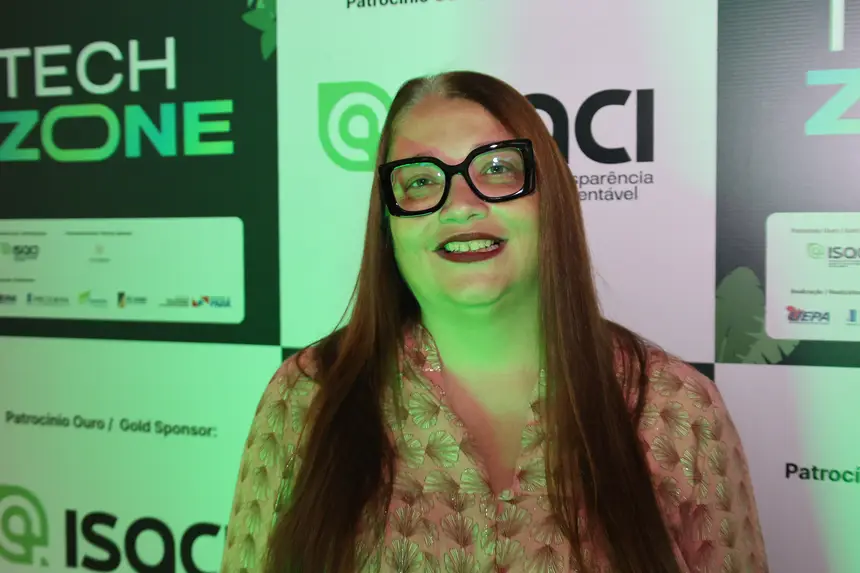
Connectivity and AI in Public Management
The opening program of TechZone at PCT Guamá also featured a lecture on connectivity in the Amazon, conducted by the Information and Communication Technology Company of Pará (Prodepa). Another highlight was the presentation of the Pará Strategy for Artificial Intelligence (EPIA) and the State Legal Framework on the use of AI, which reinforce the State Government's commitment to technological innovation.
The initiative recognizes artificial intelligence as a strategic tool to promote innovation in public administration. "It makes perfect sense to think about the sustainable use of our natural resources combined with technology. In this sense, it was very important to highlight this work at TechZone, showing how we are applying artificial intelligence for the environment and sustainability," commented Lilian Haber, State Attorney.
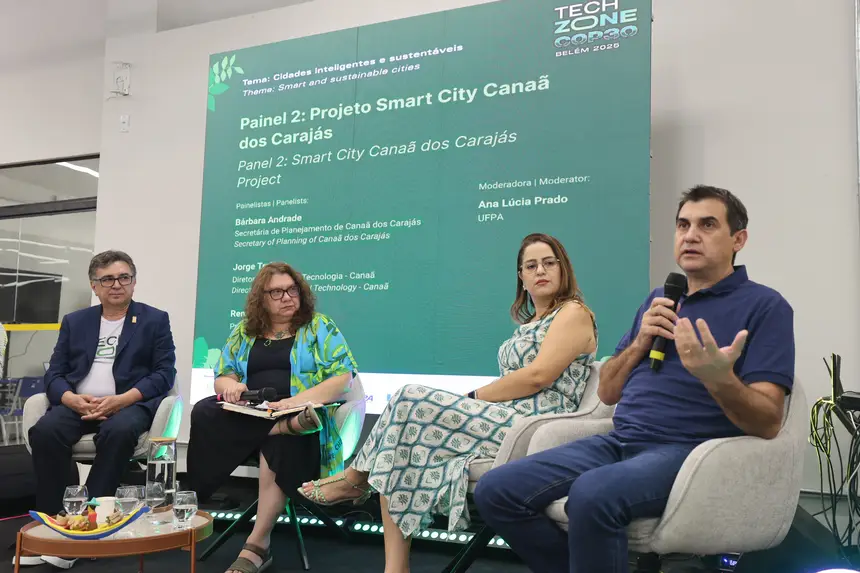
Programming and service
TechZone is an initiative of PCT Guamá, the State Secretariat for Science, Technology and Higher, Professional and Technological Education (Sectet), the Amazon Foundation for Support to Studies and Research (Fapespa), the State Information and Communication Technology Company of Pará (Prodepa), and the State University of Pará (Uepa).
The programming continues this Tuesday (11), focusing on the water resources of the Amazon, highlighting research and solutions aimed at coastal communities and sustainable water management in the region.
Text from Ascom / PCTGuamá


